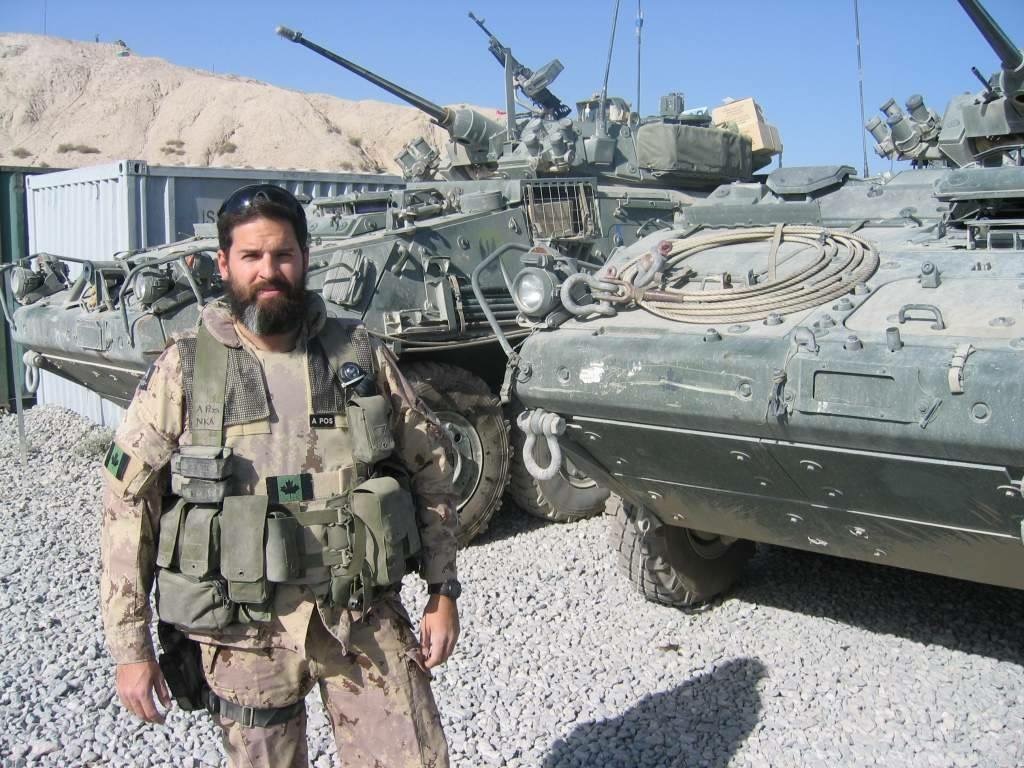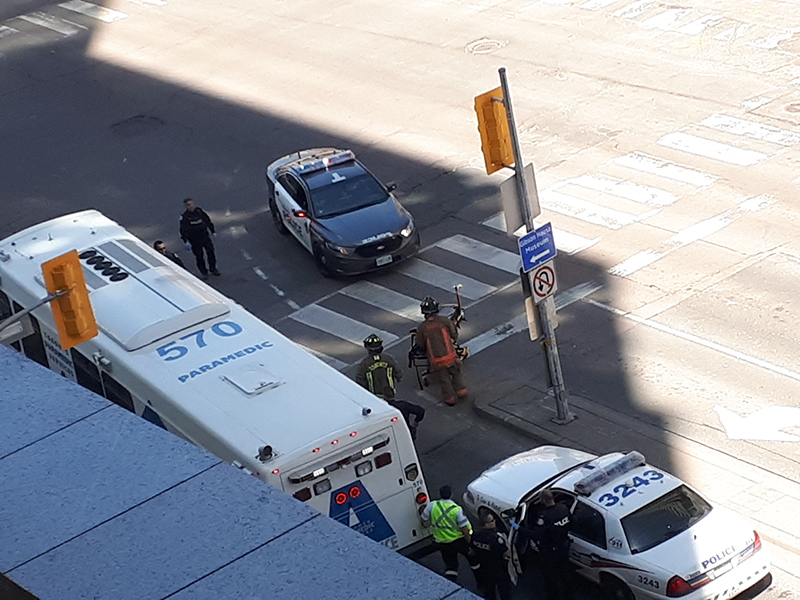The national security representative of the organized Canadian Jewish community was in close contact with law enforcement agencies on April 23, after a man in a rented truck mowed down pedestrians on a busy Toronto street.
Authorities “are not indicating it is a terrorist incident,” said Ryan Hartman, director of the Centre for Israel and Jewish Affairs’ (CIJA) national community security program. The tragic event on Yonge Street, between Finch and Sheppard avenues, killed 10 people and sent another 15 to hospital, some critically injured.
The suspect in the Yonge Street attack was apprehended quickly and it was evident that the situation was localized, Hartman said in an interview from Ottawa, where he is based.
READ: THOUSANDS ATTEND FUNERAL OF FAMILY KILLED IN TERRORIST ATTACK
Associated Hebrew Schools’ Danilack campus was the closest to the scene and went into a brief lockdown as a “precautionary measure,” said Chaim Cutler, the school’s executive director. After consulting with Toronto Police Services and CIJA, the lockdown was lifted, he said.
But if the situation had been different and the threat was not “localized, or the origins were unknown,” Jewish schools, synagogues and institutions would have been prepared, Hartman said.
Depending on the information available at the time, a decision would have been made to lock down schools, or to tell people to shelter in place, or perhaps to evacuate the area.
Hartman and CIJA’s Toronto security officer were able to rapidly pass on accurate information to key partners in the Jewish community yesterday, which is one of the most critical tasks when an incident is unfolding, he said.

“As soon as the incident occurred, our local security advisor was in contact with law enforcement,” he said.
Schools were able to notify parents that the attack on Yonge Street did not pose a threat to students.
In the worst case scenario, such as if a school were to be threatened, Hartman advises parents “to remain calm and collected,” although as a parent himself, he acknowledges that would not be an easy task.
As soon as the incident occurred, our local security advisor was in contact with law enforcement.
– Ryan Hartman
Rushing to the scene is not recommended, he said, because it can delay first responders from getting to victims, or locating suspects.
“That first period of activity in responding to a security event is critical for the professionals to get on the ground and deal with it.”
The Canadian Jewish community has studied car-ramming attacks in Israel and Europe, and has taken steps to mitigate this type of violence, he said.
Bollards and obstacles have been installed in public spaces, large gatherings of people have been given “a more robust police presence” and steps are being taken to separate cars from people, said Hartman.

In the coming days, CIJA’s national community security program will “100 per cent be reviewing the incident and looking at ways we can build on what we have,” he said.
“We should have confidence in our current state of security vigilance and awareness in our Jewish community,” he continued. “It is robust and we are steps ahead of other communities.” In fact, the Jewish community is frequently consulted by other groups on how to protect schools and places of worship.
“The average member of the Canadian Jewish community should take solace in the fact that this is there to help safeguard Jewish life in Canada and Canadian culture at large,” said Hartman.
“We will mitigate threats, but you can never get that (perfect) solution. The threats that are posed – it can be anything from the cyber-security realm to, God forbid, a terrorist incident – are a reality that we live in, not just here in Canada, but internationally.”
